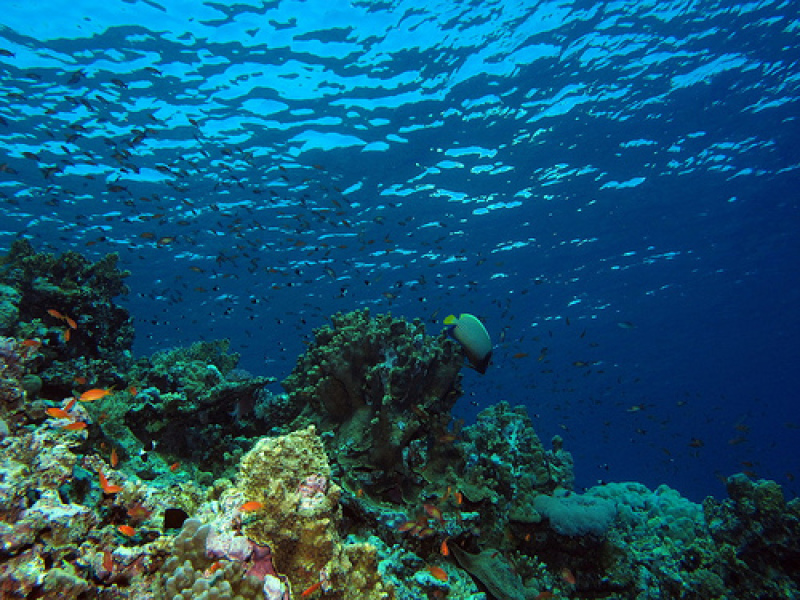
Scientists revealed that the lowering pH level of oceans caused by pollution is preventing coral reefs from developing a strong and health skeletal structure, Science Daily reported.
According to a study conducted by scientists from the Woods Hole Oceanographic Institution (WHOI), this could lead to coral reefs eroding at a faster rate.
They explained that as part of their development, coral reefs form skeletons that could be as big as cars or houses. In turn, various small marine organisms create holes into the skeletal frame of the reefs for their shelters. Eventually, this will lead to the complete erosion of the skeleton.
This process, dubbed as bioerosion, is considered natural as long as the rate of skeletal growth and the burrowing activities of the marine organisms are in balance.
"A healthy coral reef ecosystem exists in a constant and often overlooked tug-of-war," lead researcher Thomas DeCarlo said in a statement. "As corals build their skeletons up toward the sea surface, other organisms - mollusks, worms, and sponges - bore into and erode the skeletons to create shelters."
However, due to pollution caused by various man-made factors, the pH level of oceans is beginning to decrease. This then increases its acidity.
The acidification in the water then eliminates carbonate ions, one of the important elements used by corals in the development of skeletons. This prevents corals from building structures fast enough to replace those destroyed by the marine organisms or bioeroders.
To prevent a total mass erosion of coral reefs, the scientists advised members of the public to limit their activities that contribute to the pollution of oceans.
"The ocean will certainly absorb more CO2 over the next century, and ocean acidification is a global phenomenon that reefs cannot escape," DeCarlo said in a statement.
"But the encouraging news in our findings is that people can take action to protect their local reefs," he added. "If people can limit runoff from septic tanks, sewers, roads, farm fertilizers and other sources of nutrient pollution to the coastal ocean, the bioeroders will not have such an upper hand."
"The balance will tip much more slowly toward erosion and dissolution of coral reefs," DeCarlo continued.


















